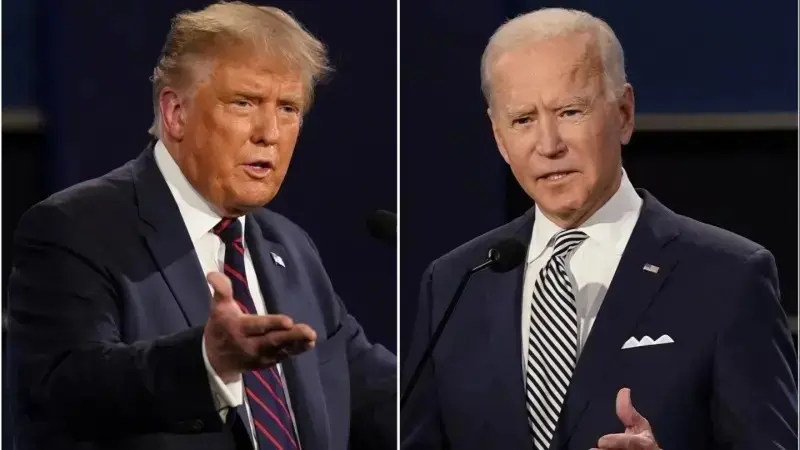Updated 22 March 2025 at 11:10 IST
US President Donald Trump Declares Biden’s Pardons 'VOID'
Despite Trump’s claims, legal scholars say he has little ground to revoke or invalidate a former president’s pardons.
- World News
- 3 min read

President Donald Trump claimed on Monday that President Joe Biden ’s preemptive pardons for members of the House Jan. 6 select committee and other officials are "VOID" and "VACANT" because they were signed using an autopen. Legal experts, however, argue that Trump’s reasoning is unlikely to stand up in court.
Trump’s Claim: Autopen Makes Pardons Invalid
In a late-night post on Truth Social, Trump asserted that Biden’s pardons were "hereby declared VOID, VACANT, AND OF NO FURTHER FORCE OR EFFECT" because they were allegedly signed without Biden’s direct approval.

He further claimed that members of the Jan. 6 committee, including former Rep. Liz Cheney (R-Wyo.), may have been involved in signing the documents themselves. Trump warned that they should "fully understand that they are subject to investigation at the highest level."
Trump’s statement suggests he is looking for ways to challenge Biden’s use of clemency, which granted legal protection to several figures he had previously targeted, including retired U.S. Army Gen. Mark Milley and former NIAID Director Anthony Fauci.
Advertisement
Legal Experts Dismiss Trump’s Argument
Despite Trump’s claims, legal scholars say he has little ground to revoke or invalidate a former president’s pardons, as per a report from Axios.
Jeffrey Crouch, a professor at American University and expert on executive clemency, noted that "other presidents have used an autopen to grant pardons." Kimberly Wehle, a law professor at the University of Baltimore, added that there is "no magic in the mechanism of a pardon" and that using a signature machine does not make it any less valid.
Advertisement
Even if courts ultimately reject Trump’s claim, Wehle warned that his efforts could still lead to prolonged legal battles and create uncertainty for those who received Biden’s pardons. "The damage, to some degree, will already have been done," she said.
Biden’s Historic Preemptive Pardons
Before leaving office, Biden issued broad preemptive pardons to individuals Trump had repeatedly threatened to investigate. His decision was framed as a measure to protect officials from politically motivated prosecutions.
At the time, Biden clarified that the pardons should not be seen as an "acknowledgment that any individual engaged in any wrongdoing." Among those pardoned were lawmakers on the Jan. 6 committee, as well as Milley and Fauci, whose families were also included.
Here is what you need to know
Trump’s latest move is part of a broader pattern of testing the limits of executive authority. His claim that he can unilaterally void Biden’s pardons could spark a legal showdown, with experts noting that presidential clemency powers have traditionally been considered final.
Though the Supreme Court has never ruled on the validity of preemptive pardons, experts like Wehle say it is "unlikely" that Biden’s actions will be overturned, given the court’s long history of upholding broad presidential clemency powers.
Political Reactions
Democratic leaders have dismissed Trump’s claim as baseless. Rep. Bennie Thompson (D-Miss.), who chaired the Jan. 6 committee, said he is "not afraid of Trump's latest midnight rant that has no basis in reality."
"Donald Trump was responsible for the deadly January 6th attack on the U.S. Capitol," Thompson claimed. "That is why he raced to pardon those who beat the police who protected American democracy that day as one of his first official acts after returning to the White House."
As Trump continues to challenge Biden’s use of pardons, the debate over presidential power and the limits of executive authority is set to intensify, with potential legal battles looming in the months ahead.
Published By : Sagar Kar
Published On: 17 March 2025 at 20:13 IST
